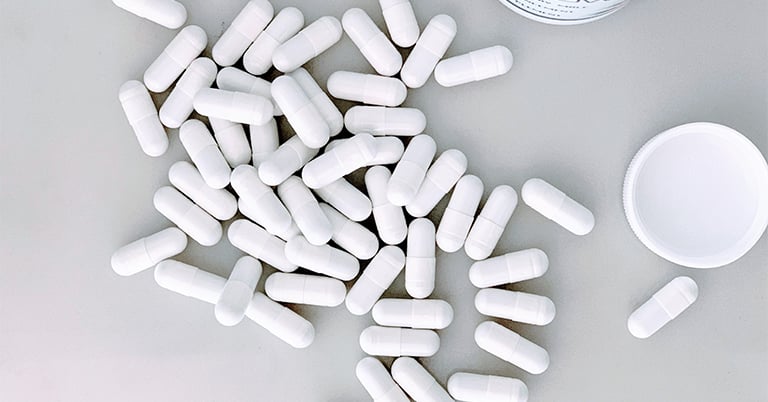Are you looking to get more protein into your diet?
Soybeans are a power food you see thrown into many healthy meals or drinks in many forms. It has an excellent nutritional profile, boasting vitamins, minerals, fiber, and polyphenols.
You can get soy protein from a variety of soy products that range on a spectrum. Soy protein isolate is one of the more processed forms of soy. Tofu is far less processed and is a condensed form of soy milk made from a process akin to cheesemaking.
Learn more about soy protein benefits and whether or not they fit your needs!
Soy Protein Benefits
-
Helps in Muscle Building
Studies show that consuming dietary protein promotes muscle gains and preserves lean muscle. Proteins are the building blocks of muscles. After working out, your muscles experience micro-tears, hence the pain.
Protein helps repair and maintain this tissue. Amino acids are the building blocks of protein. Given that soy protein is the only plant protein with all nine essential amino acids, it proves beneficial for muscle growth.
Soybeans are an ample source of protein, especially when processed. Many health enthusiasts are wary of the word "processed." Don't be afraid!
Sometimes, processing the raw soybean allows them to concentrate the protein content. A great example of this is soy protein isolate. Concentrating the soy protein from the soybeans gives soybean powders a 90% protein content.
Soy protein packs a punch with more than five times the protein content per gram compared to other soy products. Soy protein isolate powder contains about 0.89 grams of protein per gram of powder. In contrast, tofu has 0.174 grams of protein per gram of tofu.
-
Lowers Cholesterol Levels
It is true that when it comes to soy protein vs whey protein, whey protein promotes more muscle gains. However, one of the salient advantages of soy protein is its cardiometabolic advantages.
There is evidence that soy protein lowers the lipids circulating in the blood. These lipids include cholesterols and triglycerides. Since there is no cholesterol in soy protein, it doesn't add to the existing blood levels.
Additionally, soy has the ability to diminish bad cholesterol, also known as LDLs.
High cholesterol and triglycerides are proponents of heart disease. Soy can lower the amount of circulating lipids. This makes it ideal for muscle growth and maintaining heart health.
-
Lowers Disease Risk
Soy is famous as a powerhouse food for a good reason. Did you know that soybeans and soy food may even reduce the risk of most common cancers? That's right; soy may decrease the risk for breast cancer, prostate cancer, and gastric cancer.
It has a significant impact on cholesterol which aids in preventing heart disease. However, soy is also rich in polyphenols. Polyphenols are antioxidants that prevent cellular damage and promote healthy cardiac cells.
Soy protein also promotes immune defense, increases energy levels, and even reduces the risk of osteoporosis. This is a powerhouse food, indeed.
-
Lowers Blood Sugar
Soy protein may lower blood sugar. This is a pro if you're looking to moderate your sugar intake. Diabetic patients taking hypoglycemics should exercise caution.
Since hypoglycemic drugs lower blood sugar levels, consuming soy protein might lower it too much.
-
Weight Loss
Soy protein is an excellent addition to your fitness arsenal if you're trying to reduce your weight. Weight loss is a side effect of healthy habits.
Adding soy protein to your fitness regimen allows you to reap the benefits of lowered blood sugar and triglycerides. Reducing sugar and fat levels is central to weight loss by optimizing energy sources.
Soy Protein Drawbacks
Soy protein has loads of benefits, but unfortunately, it's not for everyone. So, how do you know if soy protein is right for you? Take note of the following drawbacks of soy protein.
-
Intestinal Side Effects
Soy protein may cause mild intestinal irritation. Introducing new food to your body may trigger unwanted reactions. Such side effects can range from constipation, bloating, or nausea.
-
Allergy
Soy may be an allergen to some people. As such, they may experience typical allergic reactions like itching and rashes. Some people may experience more heightened reactions, such as respiratory distress.
-
Hormone Disruption
Soy is rich in phytoestrogens which are structural and functional analogs to human estrogen. Phytoestrogens are often used to treat hormone deficiencies, such as in menopause.
If you intake phytoestrogens without a deficiency, you risk hormonal disruption. However, phytoestrogen levels in soy are not enough to cause fertility issues in men.
Men worried about the effects of soy on testosterone can rest easy. Research shows no evidence that phytochemicals in soy affect total or free testosterone levels.
-
Contraindications to Certain Conditions
Soy protein has its contraindications or conditions where taking soy is unfavorable for the body. These include pregnancy, where high doses of soy may cause harm to fetal development.
Soy tends to exacerbate symptoms of hypothyroidism. Don't let your conditions limit you. Instead, consider other proteins to incorporate into your diet.
-
Kidney and Bladder Complications
Consuming copious amounts of soy may increase the risk of kidney disease. Phytoestrogens may contribute to kidney failure in high doses. Additionally, soy contains oxalates which are a main component of kidney stones.
-
Interaction with Caffeine
Soy contains genistein, which alters the body's metabolism of caffeine. This is a good thing for people who want to prolong their energy boost from their morning coffee. However, if you're worried about the jitters, you might want to opt for another protein.
The Final Word on Soy Protein
Soy protein has an excellent nutritional profile and offers a variety of health benefits for muscle building. However, soy protein powder may not be right for everyone. Check out the benefits of other protein sources such as whey, casein, and egg and choose the source that is right for you.
This page offers health, fitness and/or nutritional information and is designed for educational purposes only. You should not rely on this information as a substitute for, nor does it replace professional medical advice, diagnosis, or treatment. If you have any concerns or questions about your health, you should always consult with a physician or other healthcare professional. Do not disregard, avoid or delay obtaining medical or health-related advice from your healthcare professional because of something you may have seen or read on this page. The use of any information provided on this page is solely at your own risk.





Leave a comment
All comments are moderated before being published.
This site is protected by reCAPTCHA and the Google Privacy Policy and Terms of Service apply.